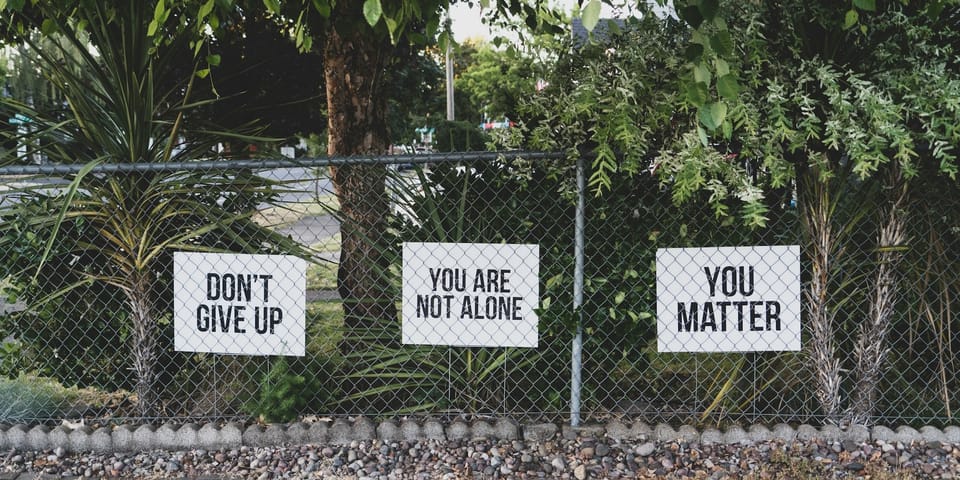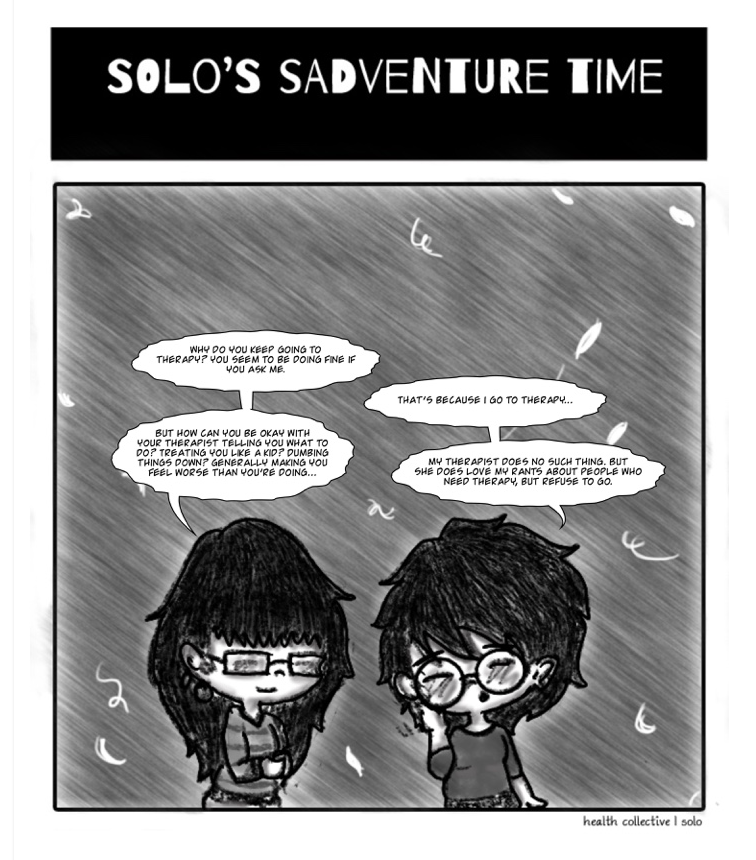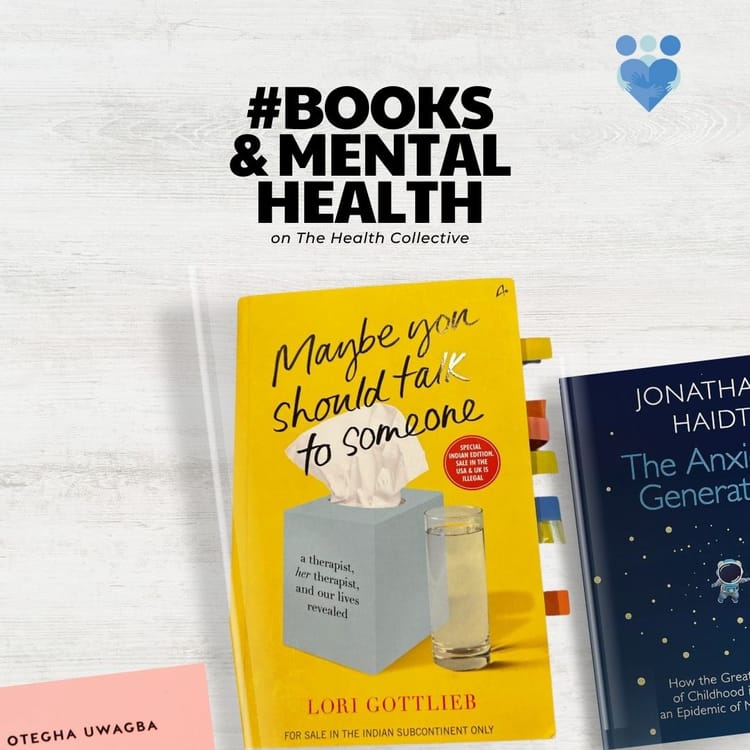What I Wish I Knew Before Seeing a Therapist: A Personal Journey

By Asma
I have been going to a mental health professional for several years now and as a result, I often find myself answering questions friends have about seeking a mental health professional’s support. Here is a list of things I often tell people and things I wish I had known earlier, instead of having to figure it out for myself, while seeking a mental health professional’s expertise. I use the term therapist throughout this piece, but it includes other mental health professionals too, such as psychologists and psychiatrists, unless clearly specified.
Important note: Only psychiatrists can prescribe medication, not psychologists or therapists.
- You don’t need to tell anyone you are going to a therapist if you don’t feel comfortable doing so.
When I first went to a therapist, I told my parents about my appointment only on the day of the appointment. I didn’t ask for permission; I was just letting them know. I also didn’t tell friends about the fact that I was going to therapy until much later. I felt uncomfortable hiding the fact that I was going to a therapist from my best friends because I felt that this implied that therapy was something I needed to be embarrassed about.
Logically, I knew I had no reason to be embarrassed. If anything, I should be applauded for seeking help when it would be easier to avoid it entirely and to suffer in silence but I knew that even a single negative reaction would throw me off and make me feel uncomfortable and embarrassed. Ultimately, self-preservation won and I told my friends that I was going to therapy several months after I began seeing a therapist, when I knew I was ready.
If you feel even slightly wary of telling your friends and family because they might not react well, trust your instincts and avoid telling them. Going to a therapist is no one’s business but your own.
- Common sources for finding a therapist
Asking friends and acquaintances for details of their therapists is often a good way to find a therapist but it comes with its own set of concerns – if you end up going to a therapist that a friend goes to, you may mention the friend in conversation and then worry that the friend may say a different version of the story in their appointment (a thought Lori Gottlieb also mentions in her book, Maybe You Should Talk to Someone) or you may run into the friend or acquaintance at your therapist’s clinic on a particularly bad day and you will have to act like everything is normal and you’re fine (this is something I worry about often, since a friend and I go to the same therapist).
Another way to find a therapist is to search through online repositories including crowd-sourced lists of mental health professionals, some of which list professionals by their areas of expertise, whether they are LGTBQ friendly etc.
The Live Love Laugh Foundation has a list of mental health professionals and their details, linked here.
The Health Collective has a list of contacts and helplines in India for emergencies as well, linked here.

- Clarify the means of communication you and your therapist will use to communicate between appointments.
Intentionally think about which means you are comfortable using for both contacting your therapist, and having your therapist contact you. Are you comfortable having your therapist/ therapist’s clinic contact you on WhatsApp, by email, SMS, or through phone calls?
I didn’t give much thought to this when I began going to a therapist years ago but an unpleasant experience with a therapist my mother went to made me realise the importance of setting clear boundaries around modes of communication that are acceptable to me. One therapist my mother went to repeatedly made several calls on WhatsApp early in the morning in order to confirm appointments, much to my discomfort. This is not the norm. All the other therapists I have interacted with for myself and my family have been incredibly professional. Setting and maintaining boundaries around the means of communication upfront is a good idea because it might feel uncomfortable or awkward to do so later.
I find e-mail to be the most comfortable means of communication. With e-mail, I can respond at my own pace, after giving sufficient thought to my therapist’s email. I can also choose to avoid thinking about it until I am ready. WhatsApp doesn’t afford me the same convenience because I feel the need to reply immediately, as I would to any other message.
Also read: #UnderstandingTherapy...by a Therapist

Understanding Therapy: Are you Looking for a Quick Fix
- Establishing a therapeutic relationship requires time.
Finding a therapist you feel comfortable with is not a very straightforward process. “How do I decide they are the right therapist for me? What if there are better therapists out there?”, are common questions people have while searching for therapists.
One tip I often give people, including family members, is to decide on a certain number of sessions – say 4 to 6 sessions, after which you will definitively decide whether or not to continue with your therapist.
If you are new to therapy, the first few appointments may feel uncomfortable because you have to divulge information to a complete stranger. That doesn’t mean the therapist isn’t good or that therapy isn’t working out for you. Unless there are clear signs that your therapist isn’t a good fit for you – they are defensive, they divulge information about other patients etc. – it can be difficult to decide whether or not you want to stay with the therapist or switch therapists. That’s why I tell people to try a certain number of sessions, up to 10 sessions, before making the decision to move on.
If you do decide to move on, try explaining to your therapist why you feel your sessions aren’t very helpful or what your discomfort is. If they are defensive, or if they blame you or aren’t responsive, that’s a clear sign that it is time to move on. While having this conversation is easier said than done, it will help you avoid future regret and the thought of whether your therapist would have in fact been responsive.
One mental health professional I went to was incredibly understanding about my work life but put pressure on me to get married. His exact words to me when I told him I wanted to do another degree in my mid-twenties were, “You’ve studied enough. You have two degrees, now you should get married. You can study even after you get married.”
I tried explaining I wasn’t interested in marriage but to no avail, which is when I realised I needed to move on. It is not for the therapist to make any decisions for you, let alone major life-decisions. In a way I was lucky because this was a clear sign for me that I needed to go to another mental health professional and so I did move on.
It may not always be so clear-cut. Sometimes there is a lingering sense of discomfort with a mental health professional but you can’t exactly pinpoint what the issue is. In such cases, trying a few sessions makes it easier to reach a decision and avoid regret later.
- Don’t ghost your therapist.
Don’t ghost your therapist. Just don’t. If calling and explaining that you’re stopping therapy is an uncomfortable prospect, send an email thanking them and explaining that you are stopping therapy temporarily or permanently.
When I stopped going to a therapist, I sent an email saying I wasn’t ready to deal with certain subjects that were coming up in therapy which is why I was stopping, which is the therapy equivalent of the “It’s not you, it’s me”, breakup conversation. Was it an example of me copping-out instead of having a difficult conversation? Yes, most definitely! But I like to think that it was far better than ghosting my therapist.
- Avoid therapists who you or your family know personally.
I would assume that this would be obvious and doesn’t require an explanation but that isn’t the case, at least in India. I have heard of quite a few instances where people I know have been to therapists who were friends of their parents, or of their extended family. An acquaintance’s sibling went to their mother’s friend for therapy. The therapist repeatedly pressured him to get married at his parent’s insistence. I’m quite sure the whole situation was highly unethical but it is also a matter of common sense – your therapist should not be related to you or your family!
- Benefiting from therapy takes time, it isn’t like other doctor’s appointments.
People often imagine that therapy will give them immediate relief. One appointment in, and all their problems will be solved. That isn’t the case. If the patterns and perspectives you have, have been formed over decades, it only makes sense that understanding them and making changes to them or your perspective will take several months, at the very least.
- Clarify all your questions around confidentiality, emergency contacts etc.
What you say to a therapist is confidential. However, from anecdotal accounts at least, a common fear that persists and that I have heard older relatives mention, is that their conversations may not remain within the therapy room.
If you have such fears, it helps to ask your therapist about confidentiality upfront. Often therapists will require details of a family member whom they can contact in case of emergencies. You can clarify under what circumstances your therapist might deem it necessary to contact your family and how much they will divulge to your family. India does not have involuntary hospitalisation like several other countries, so being admitted to a mental health facility against your will (as is depicted in movies and shows from the US, UK etc.) doesn’t occur in the same ways in India. I am choosing not to delve into this further since I am not a mental health professional myself but a quick chat with your therapist should clarify any questions you have about this.
(Editor’s Note: Remember that conversations with your therapist are meant to be confidential under the Mental Healthcare Act 2017; find out how they are maintaining that confidentiality whether you’re conducting your sessions in person or virtually)

- You can bring up ‘contentious’ topics up front as a means of vetting.
Therapists aren’t perfect, just like the rest of us. Sometimes, a therapist may not be the right therapist for you. I use a few contentious topics, or criteria if you will, while looking for a new mental health professional and I often recommend the same to friends.
In my case, I don’t want to get married and I don’t want to have biological children. At first glance, these might not seem to be contentious but you’d be surprised by the number of mental health professionals who have reacted negatively when I have said that I don’t want to get married.
When I was looking for a new mental health professional last year, I began my first appointment by asking my therapist if he was comfortable with the fact that I didn’t want to get married. When he replied in the affirmative, I asked him if he believed that everyone needed to get married. I also told him I didn’t want any pressure around achievement, I didn’t need another source of pressure telling me to achieve more than I currently was. Once I had gotten these contentious topics out of the way, I knew I could continue going to the therapist.
If you have contentious circumstances or points of view like me, it helps to bring them up early to gauge where your therapist stands on those issues, rather than waiting until later in the therapeutic journey, because if your therapist takes issue with major aspects of your life, it is better to know upfront rather than after several sessions have elapsed.
- The additional educational qualifications of therapists are less important than the rapport you build with them
Looking for a therapist can quickly become overwhelming because they have various qualifications – clinical psychologists, counselling psychologists, psychiatrists, DPM’s – and they practise various modalities of therapy – CBT, DBT etc. (Cognitive Behavioural Therapy, Dialectical Behaviour Therapy)
Fortunately, several studies suggest that the rapport a client or patient has with their therapist is a more (or the most) important factor in achieving benefits from therapy, than their qualifications or even the type of therapy they practise.
“…the therapeutic relationship is as powerful, if not more powerful, than the particular treatment method a therapist is using,” says professor John C. Norcross, the chair of an American Psychological Association task-force on Evidence-Based Relationships and Responsiveness.
Views expressed are personal
Asma is a feminist writer with an interest in public policy and mental health. She can be reached on Instagram at @asmag7
Grab your merch now!
We have stationery, art postcards and an all-new forthcoming collection of 40 Affirmations. (Digital and limited edition physical copies)

Pre-order now: Get ready to elevate your spirits with our exclusive limited edition release from The Health Collective! We're thrilled to introduce a 40-page digital (and limited edition physical prints) collection of inspiring artwork and affirmations by the talented Adwaita Das.







Member discussion